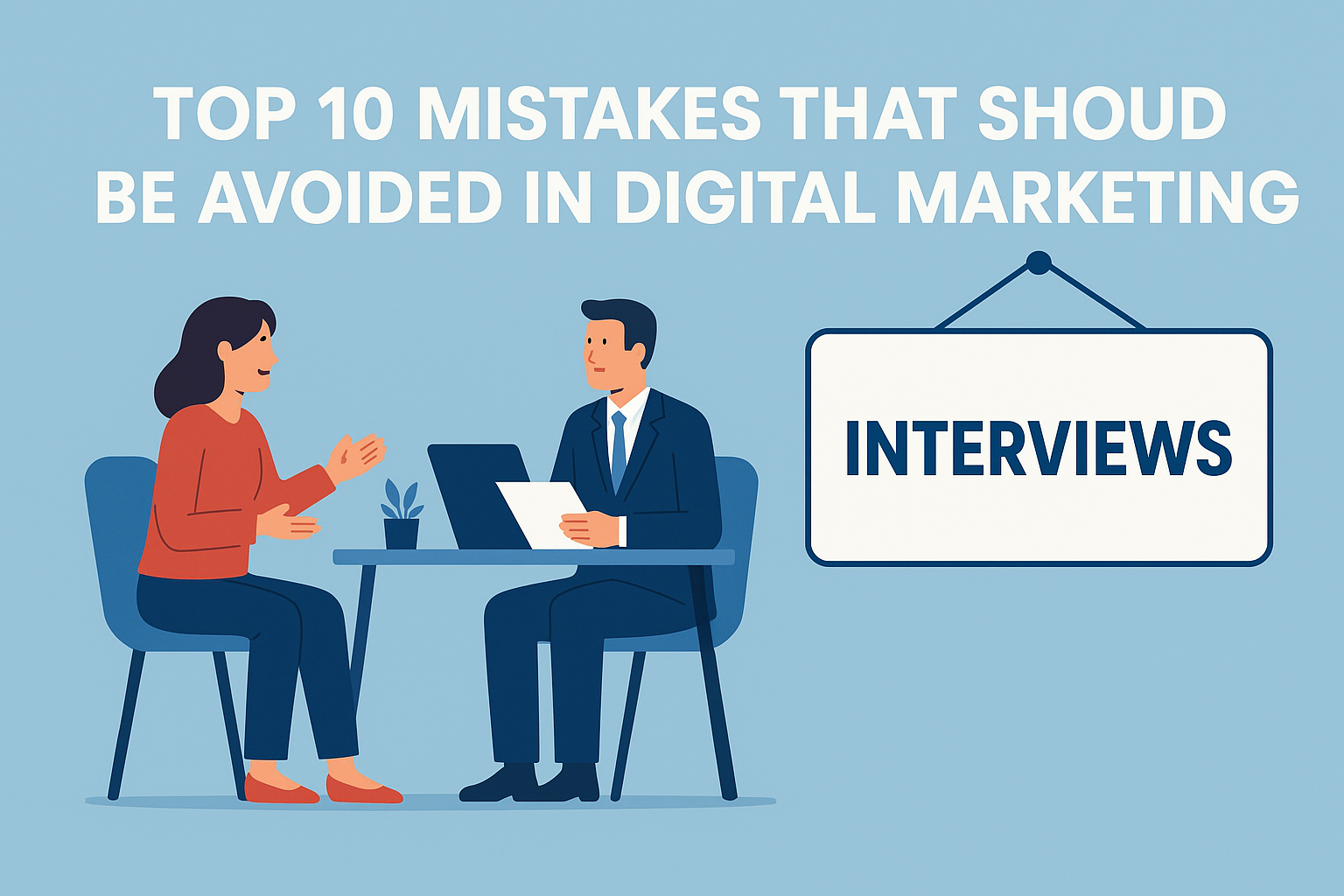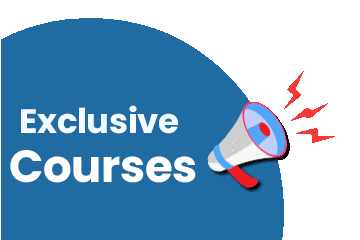
But success in interviews depends on more than knowledge. Interview mistakes can easily ruin a candidate’s good impression. Small errors are often noticed by experienced interviewers. Most of these mistakes can be avoided with simple planning. A clear understanding of the job is always expected.
Interview performance is judged by answers, attitude, and confidence. The right skills must be shown at the correct time. Some mistakes are repeated by candidates again and again.
This helpful article written by a leading digital marketing institute in Delhi explains common mistakes and how they can be avoided easily.
No research is often done before attending the interview. Company details are usually ignored by many fresh candidates. Important facts are not read from the company’s website.
The company’s products are not properly explored or understood. Services offered by the company are mostly unknown to candidates. The job role is sometimes misunderstood or wrongly explained.
The company’s target audience is not clearly known by many. Interviewers get disappointed when basic knowledge is not shown. Interest in the company must always be clearly expressed. A good impression can be created with simple research before interviews.
Clear answers are not given during many interview questions. Answers are often made too long or very confusing. Simple language is not used to explain basic marketing terms. Direct replies are expected but are not usually shared.
Specific tools are not mentioned when questions are asked. Real examples are often missed in technical explanations. Interviewers get confused when points are not clearly made. A weak understanding is shown through vague and unclear replies.
Strong answers can be prepared with a little effort. Better responses can be given by practicing before interviews. Confidence is always shown when clear answers are shared.
Latest trends in marketing are often not followed by candidates. Questions about trends are not answered with proper updates. Recent changes in SEO or ads are usually ignored. Knowledge about social media updates is not clearly shown.
New tools and features are often not even mentioned. A lack of curiosity is usually noticed by interviewers. Latest industry news should always be checked before interviews. Updates from Google or Meta are easily available online.
Awareness of trends must be shown with simple examples. Better answers can be given by reading recent blogs. Strong interest is reflected when trends are discussed confidently.
Too many buzzwords are often used without real meaning. Complex terms are shared but not clearly explained by candidates. Simple ideas are made confusing with heavy marketing language.
Interviewers get annoyed when answers are not easy to follow. Real understanding is not shown through fancy digital terms. Common tools are mentioned without sharing proper usage or results.
Practical knowledge is expected but is rarely shown clearly. Buzzwords must be used only when they are explained well. Clear answers are preferred over confusing industry language.
Better responses can be prepared with simple and honest replies. A strong impression is made through clarity and logic.
Portfolios are often shared without proper structure or clarity. Work samples are shown but not explained in simple words. Important results are not highlighted or clearly mentioned by candidates.
Tools used in projects are often not explained properly. Achievements are not supported with data or real outcomes. Visuals are added but not discussed during the interview. Interviewers get confused when work is not clearly presented.
A portfolio must be prepared with short and clear points. Case studies should be included with simple performance details. Practice should be done to explain the portfolio confidently. A strong portfolio can improve the interview result quickly.
Questions are often not asked by many job candidates. Interviewers feel disappointed when no interest is shown. The job role is not properly discussed by candidates. Company goals are usually not asked or clearly understood.
No questions show a lack of curiosity or effort. Good questions can be prepared before attending the interview. Clear doubts should be asked to understand the job better.
Company culture can also be discussed through small questions. More confidence is often shown when questions are asked.
A better impression is created with thoughtful and simple questions. Interviews should be treated as two-way conversations always.
Real-life examples are often not shared by many candidates. Practical experience is not clearly explained in most interviews. Social Media Marketing strategies used in projects are not described properly.
Results from campaigns are not supported with real data. Interviewers look for proof of skills through actual work. Stories about past projects are usually missed or unclear. Simple examples should be prepared before attending the interview.
Experience can be shown through small case studies or tasks. Better answers are given when real examples are included. A strong impression is created by sharing practical work details. Learning is proved when examples are clearly and honestly shared.
Negative comments are often made about old companies or managers. This behavior is usually noticed and disliked by interviewers. Professionalism is expected, even when past experiences were difficult.
Past employers should be spoken about with respect and care. Bad experiences must be described in a positive or neutral way. Criticism can be seen as a lack of maturity or teamwork.
Positive learning from past jobs should always be highlighted. A good attitude is shown when challenges are explained calmly.
Negative talk reduces the chances of being hired quickly. A respectful tone is always appreciated during the whole interview.
Communication skills are often weak in many interview candidates. Ideas are not expressed clearly or in simple language. Answers are sometimes too short or very confusing to understand.
Important points are missed when speaking too fast or too slow. Listening carefully is often ignored during the question-and-answer session. Body language and tone are also noticed by the interviewers.
Confidence can be shown through clear and calm communication. Practice is needed to improve speaking skills before the interview. Strong communication skills help ideas to be easily understood.
A good impression is made when thoughts are shared clearly. Effective communication increases the chances of getting the job.
Basic tools are not clearly understood by many candidates during their best SEO course in GTB Nagar. Google Ads and Analytics are often used without full knowledge. Features of tools are not properly explained during interviews.
Simple questions about tools are not answered with confidence. Wrong terms are used while explaining campaign setup or reports. Interviewers expect basic tools to be clearly understood and explained.
Real experience with tools must be shared using simple words. Practice should be done on free tools before interviews. Demo accounts can be used to improve tool knowledge.
Better answers are given when tools are clearly understood. Strong tool knowledge creates a good impression quickly.
